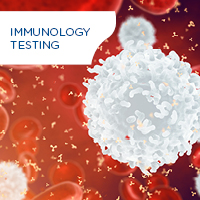Discover our blog articles
Watch our Webinar Replay
| Cancer Type | Cell lines |
|---|---|
| Bladder | RT112, 647-V, VM-CUB-2, J82, RT4, UMUC-6 |
| Brain | U87-MG, U251-MG, KELLY |
| Breast | HCC38, JIMT-1, KLP-4, MDA-MB-157, MDA-MB-231, MDA-MB-468, MCF-7, SKBR3, T47D, ZR-75-1 |
| Bone | Saos-2, U-2 OS |
| Colorectal | DLD-1, SW48, HT29, HCT116, SW620, SNU-1411 |
| Fibrosarcoma | HT1080 |
| Gastric | NCI-N87 |
| Hepatic | HepG2 |
| Leukaemia | CCRF-HSB2, HL-60, MOLT-4, Jurkat, NOMO-1, THP-1, K562, MOLM-13, HNT-34 |
| Lung (NSCLC) | A427, A549, H2122, PC9 |
| Lymphoma | OCI-Ly10, TMD8, Raji, Ramos |
| Melanoma | A375 |
| Myeloma | MM.1S, RPMI8226 |
| Ovarian | SKOV3, OVCAR3, OVCAR4, IGROV-1, TOV112D |
| Pancreatic | AsPC-1, BxPC3, Capan-1, HPAFII, MIA PaCa-2, Panc1 |
| Prostate | 22rv1, C4-2, LNCaP, DU145, PC3, VCaP |
| Renal | A498, 786-0, ACHN |
In vitro Oncology Assays
Our in vitro platforms allow detailed evaluation of compound efficacy and mechanism of action across the hallmarks of cancer.
Cytotoxicity profiling
- LDH release
- MTT reduction
- Annexin V / PI
- High content assay
Cell proliferation
- [3H]-Thymidine incorporation
- BrdU incorporation
- Ki-67-labeling
Signal transduction
- Protein phosphorylation and localization
- Signal transduction pathways
- DNA damage (H2A.X, 8-OH-dG)
Vascularization assessment
- VEGF release
- Adhesion proteins expression
- Cell tube formation
Cell migration & invasion
Biomarker identification & validation
Through our partnership with Axis Bio, we also offer post-study analyses such as histology, real-time PCR, blood counts, and clinical chemistry to provide deeper mechanistic insights.
Discover our
oncology-related assays
Tumor Microenvironment (TME) & Immuno-Oncology Assays
Understanding the interaction between tumors and immune cells is critical for oncology drug discovery. QIMA Life Sciences offers assays covering a wide range of immune cell types:
Immune cells:
- Neutrophils, basophils, eosinophils
- Monocytes, macrophages, dendritic cells
- T cells and regulatory T cells
Assays:
- PMN, Macrophage, Dendritic Cell activation
- Phagocytosis
- PMN oxidative burst
- M1 or M2 polarization and switch
- Chemotaxis
- T cell differentiation
- Treg phenotyping
- Proliferation
- Cytokine and chemokine release
In partnership with Axis Bio, we expand immune-oncology studies with syngeneic models and advanced immune profiling (flow cytometry, FACS, cytokine multiplexing, IHC).
Learn more about our
Immune Response Assays
In vivo Oncology models (in partnership with Axis Bio)
Axis Bio brings extensive expertise in validated in vivo oncology models, ensuring translational relevance and robust decision-making for oncology programs.
Xenograft models
- Wide range of tumor types, validated against standard-of-care treatments
- Implantation at flank or orthotopic sites
- Client-specific cell line validation
Metastasis models
- Studies with or without luciferase-expressing cells
- Real-time bioluminescent imaging for tumor tracking
Syngeneic & humanized models
- Advanced systems for immuno-oncology studies
- PDX (patient-derived xenograft) models for enhanced clinical relevance
PK/PD studies
- Compound exposure and biomarker analysis in tumor tissue
- Optimization of dosing regimens for efficacy studies
- INIVE (in vitro–in vivo extrapolation)
Advanced Capabilities for Novel Modalities
Our oncology platforms support cutting-edge therapeutic approaches, including:
- Antibody-drug conjugates (ADCs)
- Bispecific antibodies
- CAR-T and other cell therapies
- Gene therapies and protein degraders
To strengthen decision-making, Axis Bio provides in-depth mechanistic analysis such as deep immune phenotyping, cytokine arrays, histology, and transcriptomic integration. Combined with our ex vivo human skin capabilities, this creates a seamless workflow from in vitro validation to in vivo proof-of-concept
Partner with QIMA Life Sciences
With the integration of Axis Bio’s oncology expertise, QIMA Life Sciences offers a unique continuum of services spanning from cell-based assays and tumor microenvironment models to translational in vivo oncology studies.
Whether you are working on small molecules, biologics, or advanced modalities, our comprehensive solutions help you generate robust, decision-driving data across the entire oncology R&D pipeline.
Contact us today to learn how our oncology assays and models can accelerate your drug discovery and development programs.








